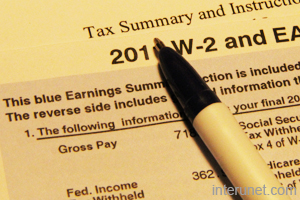
Is it worthwhile to take tax preparation courses
Even though you might took some college tax classes and think that courses won’t teach you anything new, but it is not always the case. The college courses are usually based more on theory than on practice. No one saying that they are not useful, but many times after just taking those classes students still have difficulty to apply their knowledge to practice. On the other hand, tax services companies offer courses for their seasonal employees and teach them both theory and practice to do modules (scenarios) on their software where students really have hands-on experience before actually dealing with clients.
Advantages of taking tax preparation courses
- These tax preparation courses usually free, except for a book that you need to purchase. Therefore, these courses won’t cost you much.
- If you want to concentrate exclusively on practice part of preparing tax returns, you can take a crash tax course where they won’t teach you any theory, but just solely focus on doing scenarios.
- If you don’t want or can pay anything at all, you might consider becoming a volunteer for non-for-profit tax assistance organization. They also offer short, but absolutely free courses and provide you with a free tax book.
- You gain not only valuable experience, but after the volunteering, you will get acknowledgement from the IRS for outstanding community services which will look good on your resume.
Disadvantages of taking tax courses
- You might face the risk of not finishing them or passing the test. You might have to pass a pretty heavy readiness test which will determine whether you should be hired or not.
- Tax preparation courses usually are not long, but time consuming. On the other hand, the more you’ve learn from those courses the either it will be while preparing tax returns for individuals.
What you need to get a PTIN
In order to get a PTIN you need to fulfill certain requirements set by the IRS. You need to complete a minimum of 15 hours of continuing education (CE) credit which include
- 2 hours of ethics or professional conduct,
- 3 hours of federal tax law updates, and
- 10 hours of federal tax law topics
If you do it through some tax services company, they should send the information about your CE credit and results to the IRS. However, if you do it on your own and going to be a self-employed tax preparer, then you are responsible for mailing it.
Make sure before applying for PTIN that you don’t have your own tax debts and filed all your tax returns when you supposed to. When you are applying for PTIN you will be asked about last year tax return and other relevant information. Therefore, in case you are not sure whether you are qualified to get a PTIN, it is better to contact directly the IRS. They will tell you whether you filed all the necessary (required) tax return and what you should do in case you did not do it.
Get or renew a PTIN
You need to apply for the PTIN through the IRS website and pay their fee. Usually the fee is a little bit more expensive to getting the PTIN than for renewing one. If everything will be ok, you will get the number in about 24 hours, but commonly it takes a few minutes.
